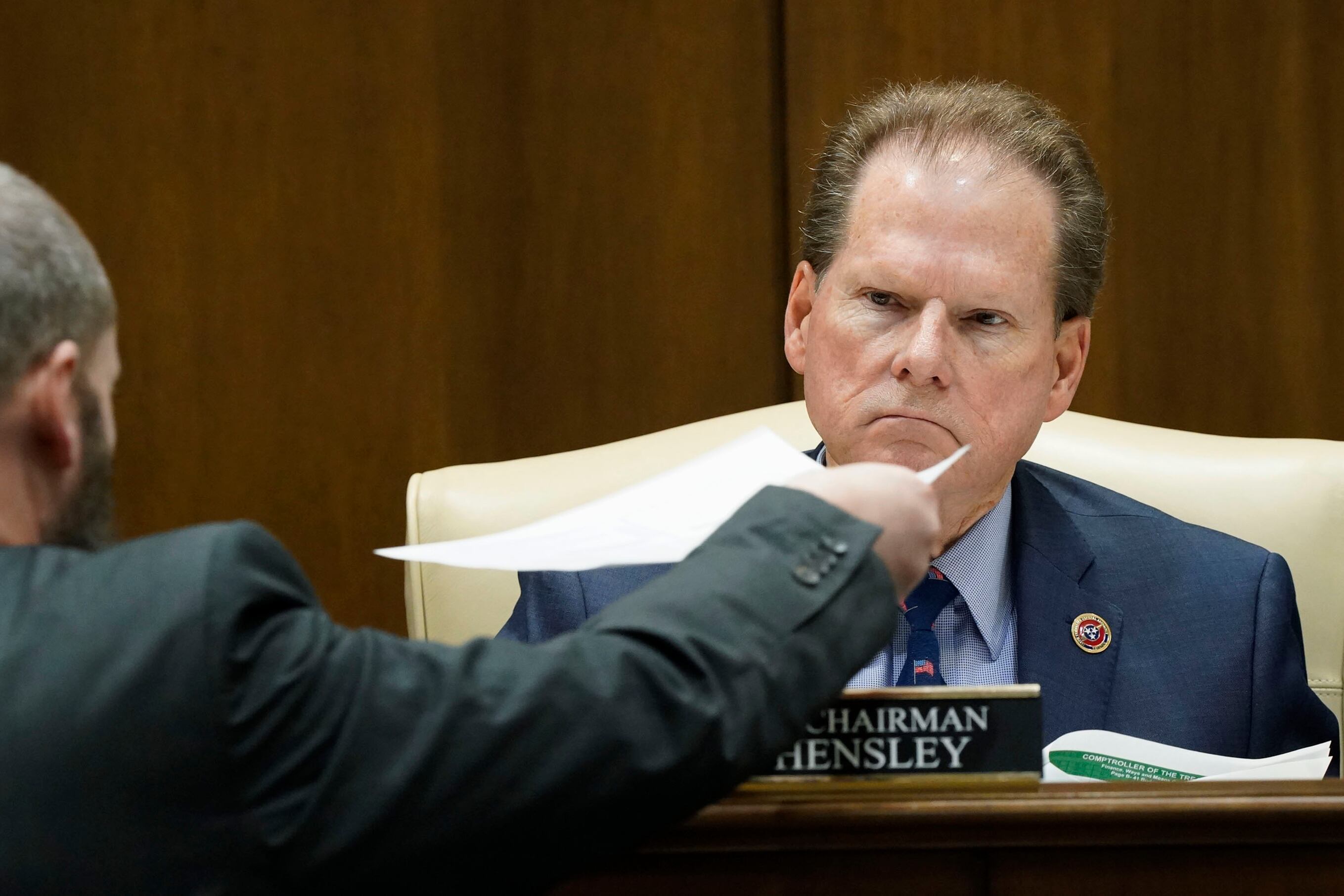Days after Gov. Bill Lee signed a law requiring school libraries to screen their materials for “age appropriateness,” Tennessee lawmakers advanced a harsher bill that could slap school librarians with criminal penalties over books some might label obscene.
The bill under consideration also would require districts or charter schools to pull books from library shelves if a parent or guardian complains the content is obscene or harmful to minors. A local school board or charter school governing body would have 30 days to decide whether to permanently remove the material based on local community standards. And the state could withhold funds from schools that don’t comply.
The Republican proposal, sponsored by Sen. Joey Hensley of Hohenwald and Rep. Scott Cepicky of Culleoka, passed 5-1 Tuesday in the Senate Education Committee, with three Republican members present but not voting. On Monday, the full House approved the measure 63-24 along mostly partisan lines.
With book challenges and bans on the rise in Tennessee and across the nation, supporters say the legislation is necessary to create processes for addressing complaints from parents. But critics worry school leaders will feel pressure to pull titles from shelves to avoid controversy. They’re also concerned how local officials would define obscenity.
Tennessee’s Republican governor, who proposed the age-appropriate school library bill that he signed last week, opposes the second measure as unnecessary.
“I think this bill seeks to solve the same problem that the governor has looked to solve with the Age-Appropriate Materials Act,” said Eric Mayo, Lee’s legislative liaison, during testimony before the Senate panel.
But Hensley, the bill’s Senate sponsor, said the governor’s plan doesn’t go far enough.
“The wording in the governor’s bill is age appropriate. This is dealing with age-inappropriate material and obscene and pornographic material,” he said, referring to books such as “Me, Earl and the Dying Girl,” about the friendship of a high school boy with a girl who has leukemia.
Hensley’s bill has had lengthy and contentious hearings in House committees, including testimony of support from country music singer-songwriter John Rich and former “Saturday Night Live” cast member Victoria Jackson, both Tennessee residents. Rich, of the duo Big & Rich, voiced unfounded claims that some librarians have allowed materials that “groom” school children for sexual abuse and pornography as a sexual predator would, while Jackson called the issue a “spiritual battle” between good and evil.
A leader with the Tennessee Association of School Librarians said its members do not purchase obscene or pornographic materials for school collections.
“If a student or parent feels a book is inappropriate, we encourage them to speak with their school librarian and follow district procedures for lodging a complaint so the book can be reviewed,” said Lindsey Kimery, the group’s past president, in a statement Tuesday.
This week’s debates in the GOP-controlled legislature were less accusatory of librarians than in previous committees but mostly supportive of the bill’s intent to block content that some parents find objectionable.
The Senate panel amended its version so local boards can set policies limiting the number of times a book or other material may be reported as obscene, or the number of materials that one person may report at one time.
But Sen. Raumesh Akbari, the committee’s lone Democrat, said the change wasn’t enough to safeguard libraries from unnecessarily removing books, including the Bible, from circulation, even if it’s only temporarily.
“My concern is that this will allow books to be removed before they’re even reviewed,” said the Memphis lawmaker. “I know that the school board will have the authority to review it and will likely put a book like the Bible back. But I think that it really abridges our students and the school community of their rights when one particular person finds something to be offensive and then it’s removed for 30 days.”
Sponsors in both chambers said criminal penalties against a school librarian would only happen if the librarian puts a book back in circulation in defiance of a school board decision to remove it. However, the Senate committee’s legal counsel said that’s not what the bill says.
Tennessee law currently shields people who possess obscenity if that content is required for educational, scientific, or governmental research. The bill would delete the educational exception.
During Monday’s debate on the House floor, Cepicky said his bill was intended “to protect librarians and prevent the arbitrary removal of a book from a school library.”
But Rep. Eddie Mannis, the legislature’s only openly gay Republican member, worried about other consequences.
“I just want to go on the record that I am adamantly against children ever being exposed to any kind of pornographic material,” said the Knoxville lawmaker, who voted against the measure. “I’m just concerned that this legislation could be used to subjectively eliminate education materials that people misjudge to be harmful or offensive strictly due to their own personal prejudice or bias.”
The state’s school library association opposes the bill, in part over the lack of clarity about how to interpret it and also because districts already have policies for reconsidering books that students or parents complain about.
“I’m concerned there will be a slew of unnecessary book challenges as a result of this bill, and I think it will create more trouble for school boards,” said Kimery, library coordinator for Metropolitan Nashville Public Schools.
Marta W. Aldrich is a senior correspondent who covers the statehouse for Chalkbeat Tennessee. Contact her at maldrich@chalkbeat.org.








